Pastor’s Word
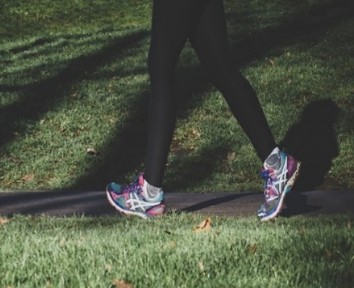
The Food We Eat
by Rev. Racquel Ray,
Assoc. Minister of Congregational Life
I’ve been thinking a lot about the food we eat. In the spring of this year, I preached about the need for wellness as we restore our communities past the covid pandemic. Our discussions around wellness resulted in this summer’s walking group. Spending early mornings in nature with friends was delightful to the soul.
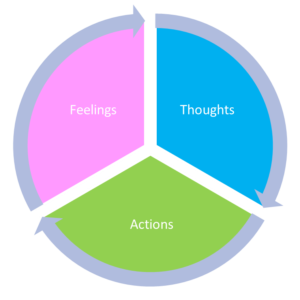 There is a principle in the wellness journey of connecting actions, thoughts, and feelings. The more we do an activity, the more we think about it, and the more we process our feelings. These three are connected in a cycle. The more we feel the more we think. And the more we think and feel, the more we act.
There is a principle in the wellness journey of connecting actions, thoughts, and feelings. The more we do an activity, the more we think about it, and the more we process our feelings. These three are connected in a cycle. The more we feel the more we think. And the more we think and feel, the more we act.
Over the past several months, I have wondered how this applies to the other aspects of wellness: financial, spiritual, relational, emotional, and physical. The adage ‘fake it till you make it’ presents aspects of challenging mental heal implications. But, it does ring true for stopping behaviors that do not serve our wellbeing and adding activities that do. Taking a walk leads to thinking about the benefits of walking and the feelings of wellness, strength, vitality. Going to church leads to thinking about the benefits of being surrounded by a loving community of believers and the feelings of belonging, welcome, and purpose.
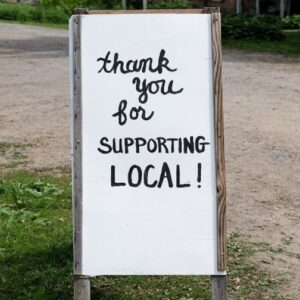 I wonder how this applies to nutrition and our local food systems. As grocery prices continue to soar, we turned to growing more of our own food in the backyard garden. We have been deliberate about harvest and preserving our bounty. I have spent some time returning to local farms to fill in what we have not grown. Local bakeries, local butchers, local dairies, and local orchards are of interest. To accompany my thoughts, actions, and feelings around our local food systems, I’m also reading The Omnivores Dilemma by Michael Pollan. (Pollan, 2007)
I wonder how this applies to nutrition and our local food systems. As grocery prices continue to soar, we turned to growing more of our own food in the backyard garden. We have been deliberate about harvest and preserving our bounty. I have spent some time returning to local farms to fill in what we have not grown. Local bakeries, local butchers, local dairies, and local orchards are of interest. To accompany my thoughts, actions, and feelings around our local food systems, I’m also reading The Omnivores Dilemma by Michael Pollan. (Pollan, 2007)
It seems the dilemmas we face beyond shopping politically are practical. How can we afford to feed our families and what will they eat? How can folks with modest income afford groceries? How can food and nutrition affect our health and wellness: thoughts, feelings, and actions?
I am reminded of Genesis 2: “Now the Lord God had planted a garden in the east, in Eden; and there he put the man he had formed. The Lord God made all kinds of trees grow out of the ground—trees that were pleasing to the eye and good for food. In the middle of the garden were the tree of life and the tree of the knowledge of good and evil. A river watering the garden flowed from Eden; from there it was separated into four headwaters…The Lord God took the man and put him in the Garden of Eden to work it and take care of it…The Lord God said, ‘It is not good for the man to be alone. I will make a helper suitable for him’…Adam and his wife were both naked, and they felt no shame.” (Genesis Ch. 2 paraphrased)
The Genesis story is familiar to most of us. And yet, if we take a close look, we can see ribbons of action, thoughts, feelings running through God’s provision and Adam’s process. Adam was present in the garden with every tree that was pleasing to the eye and good for food and fresh water. Adam’s action was to tend the garden. As Adam tended the garden, Adam thought he was lonely and God provided a helper. Adam and Eve worked together in the garden and felt no shame.
 It seems that as humans, we are provided every plant for our nourishment and fresh water. We are to care for our environments which provide that food and drink. And, our environments are both pleasing to the eye and good for our bodies. And when we do that in partnership with each other we feel no shame. In fact, when we are attentive to the world around us and the provisions around us we find community and contentment.
It seems that as humans, we are provided every plant for our nourishment and fresh water. We are to care for our environments which provide that food and drink. And, our environments are both pleasing to the eye and good for our bodies. And when we do that in partnership with each other we feel no shame. In fact, when we are attentive to the world around us and the provisions around us we find community and contentment.
Looking toward our own community’s food systems we see a few local farms and a few farm stands. We can meet our farmers and may even be able to pick our own food. We can grow food in our yards or in pots or planters. We can even grow food on our windowsills! At our local farms and farmer’s markets we can meet other people who share our concerns for the local foods systems. We can feel a sense of connection with both the earth and the community; as though we are a part of that cycle. The food we eat is one part of our connectedness to God, Neighbor, and Self.
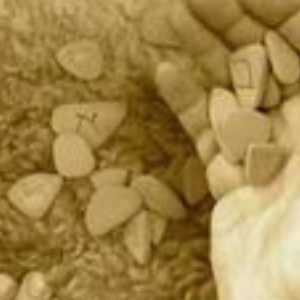
2.20.1.13
2.20.1.13
James 1:13
“No one, when tempted, should say, ‘I am being tempted by God,’ for God cannot be tempted by evil and [God] tempts no one.”
THAT is an interesting passage.
The deacons have seen me do this before. When I’m stumped, when I really have no internal nudging on where to go or what to say, I use a random number generator to pick a passage of scripture and see what it has to say to me. It’s kinda like a modern version of casting lots.
What I do is this:
-
- I start by asking my computer to give me a random number. If it is odd, I start with the Old Testament. If it is even, the New.
- Then I generate a second number based on the number of books in that section. (Hint: 39 For the O.T. and 27 for the N.T.)
- Then I generate a third number taken from the number of chapters present in the selected
 book.
book. - Finally, I generate a number indicating the verse within that chapter.
- Therefore…
2…20…1…13
James 1:13
“No one, when tempted, should say, ‘I am being tempted by God,’ for God cannot be tempted by evil and [God] tempts no one.”
*One caveat on this method of selecting scripture: You can end up with really wonky passages AND you have to be very sure to explore any passages selected this way within the larger context of the Bible and Christian faith. It is far too easy to misinterpret the meaning of a passage when it is not understood within the greater context of our faith.
Now, on to the passage…
What a fascinating passage this is.
My first reaction upon reading it was to push back against it. I asked myself, “But…doesn’t God test people in the Bible? What about Jesus in the wilderness? What about Job? What about others? What about the Lord’s prayer? Where we say, ‘Lead us not into temptation’?” However, when I stopped and thought about it, I couldn’t come up with an obvious example of God tempting people. It is ha-satan (Heb), the “adversary” or “accuser”, who tempts Job. It is the  diabolos (Gk), the “false accuser” or “slanderer” who tempts Jesus. And as far as the Lord’s Prayer goes, it never states that God does tempt us, only that God not lead us into the path of temptation. (People have debated for millennia about what that might mean!)
diabolos (Gk), the “false accuser” or “slanderer” who tempts Jesus. And as far as the Lord’s Prayer goes, it never states that God does tempt us, only that God not lead us into the path of temptation. (People have debated for millennia about what that might mean!)
As I went on and read the broader context of this passage, it became clear that James is writing to people who are wrestling with some temptation. He wants to reassure them that this temptation does not come from God, but rather comes from within, and that we must be careful to remain strong in the face of temptation as giving into temptation leads to “death.” This death James holds in contrast to “the crown of life” which comes from God. So, the death of which James speaks is not mortal death, but the absence of eternal life. So, this warning about blaming God for our temptations is actually a warning about giving into temptation, staying true to the faith during hard times, and in-so-doing receiving the final reward of eternal life.
Taking that passage, then, into an even broader context of faith leads me to recognize two more points: strength and forgiveness.
Strength. We believe that through the Holy Spirit God gives us the grace that we need to overcome our temptations. We are not alone in any of our struggles, but God is with us. As Christ turned down all the gifts of the devil during his temptation in the wilderness, we too have that ability. It isn’t easy, but with God’s help we CAN resist temptation.
Of course, we don’t always. Which leads us to…
Forgiveness. We are blessed that God understands our human frailty. God understands that even with the resources of the Holy Spirit at our disposal, we still give in to temptation. And since God is a God of love, God does not want us to suffer. Therefore, God offers us grace and forgives our failures (at least when we recognize them and repent).
And back to James…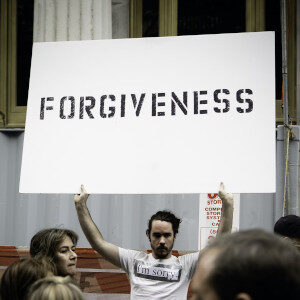
So, since God offers us forgiveness, should we just give into temptation and live boldly in sin trusting in God’s grace? Of course not! Going back to our passage from James, he warns that giving into temptation leads to “death.” I previously stated that he is speaking of death in an eternal sense. But he is also speaking of death in a spiritual sense. Temptation and sin separate us from God. They undermine our spiritual foundations. They impact the quality of our lives. Which, in effect, is a death in and of itself. By giving into temptation, we fail to live in the fullness of life. We sacrifice the wholeness and goodness of life for instant gratification and simple rewards. By living fully and faithfully in God, we experience all the richness that this life has to offer and live into the promise of the next life as well!
Thank you, James.
Thank you, casting of lots.
Thank you, Holy Spirit, for guiding me in this blog today.
Amen.
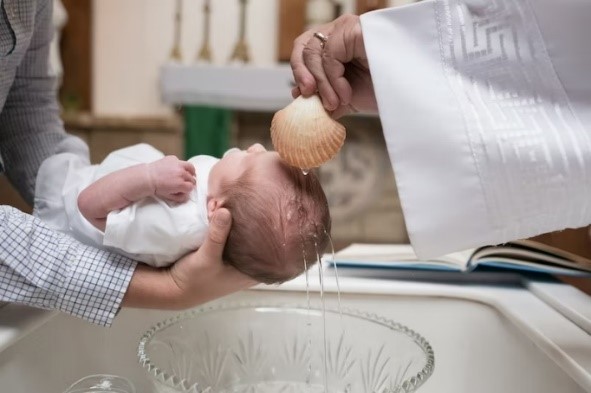
So…what is a Minister of Congregational Life?
by Rev. Racquel Ray,
Assoc. Minister of Congregational Life
Over the past two years, Barrington Congregational Church, UCC has been in the process of discerning the right candidate for the role of settled Associate Minister of Congregational Life. As your newly called said Associate Minister of Congregational Life I explore the question of What is a Minister of Congregational Life anyway?
There are many types of ministers and roles. Theologian, poet, and parson George Herbert (1593-1633) wrote that a pastor is always a person but is only a minister in the context of their congregation and community. It is in the specific place of congregation and community where the pastor has an identity and role (Sheldrade, 2009). There are Associate Pastors of Youth Ministry, Adult Formation, Elder Ministries, Wellness Ministries, and Children’s Ministries. There are Associate Ministers of Worship and Music. There are Associate Ministers of Outreach and Mission and Justice. An Associate Minister for Congregational Life is a minister to the congregation members from birth to grave and to the community wherein they minister.
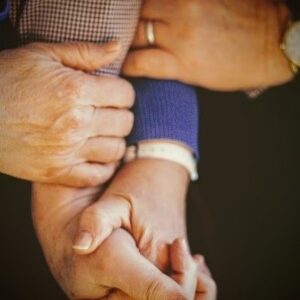 It is my role to support our Senior Minister, Rev. Dale, in the pastoral roles of Christian work and worship. It is also my role to support and strengthen our connections with our children, youth, and families. I also help develop adult formation and fellowship, visit our homebound members, attend to the dying, and support families through the bereavement process.
It is my role to support our Senior Minister, Rev. Dale, in the pastoral roles of Christian work and worship. It is also my role to support and strengthen our connections with our children, youth, and families. I also help develop adult formation and fellowship, visit our homebound members, attend to the dying, and support families through the bereavement process.
Our call letter together says, “The Associate Minister of Congregational Life shall, under the direction of the Senior Minister, be responsible for the full spectrum of ministry for and to the congregation of this church and serve as preacher, teacher, and counselor for the congregation in all aspects of the life of the church. With a focus primarily on the congregational life of the Church, this minister shall be responsible to nurture all members and groups of our community so they may feel embraced by God’s love, welcome in our community, engaged in Christian fellowship, moved to explore their faith, and inspired to do God’s work within our community and out in the world.”
As I have described it, the Associate Minister of Congregational Life translates the vertical vision of the senior minister into the horizontal ministry of the congregation. If Rev. Dale has a vision for the direction of our ministry, he and I collaborate to curate programming, worship, or events to embody that vision. And, because we are a congregational community in covenant, If I have of vision for the direction of our ministry, Rev. Dale and I collaborate in the implementation as well.
 How we embody God’s call to our congregation manifests in our ministries. Last week’s Blog from Rev. Dale asked us to boldly envision what ministry we could do. He said, “Think wild. Think crazy. Think big impact.” The results of that listening experiment will bring us new ideas like Wellness Ministries, using our education building for a private Christian K-8 Day School, adding solar panels to the education building to cool the church in the summer, adding electric vehicle charging stations to the commuter parking lot, or weaving our ministries into partnership with local cultural programs in the black community.
How we embody God’s call to our congregation manifests in our ministries. Last week’s Blog from Rev. Dale asked us to boldly envision what ministry we could do. He said, “Think wild. Think crazy. Think big impact.” The results of that listening experiment will bring us new ideas like Wellness Ministries, using our education building for a private Christian K-8 Day School, adding solar panels to the education building to cool the church in the summer, adding electric vehicle charging stations to the commuter parking lot, or weaving our ministries into partnership with local cultural programs in the black community.
My role is to listen to those wild, crazy, big ideas and create the supporting ministries and community connections to try it. Sometimes that means that a ministry idea will not work. Sometimes it means it will not be successful at first but needs more time. And there are times when a wild, crazy, and big idea launches beautifully into its own spiritual blossom (like last year’s Christmas Story Stroll).
 An Associate Minister of Congregational Life is a servant leader with a thick skin and a prophetic spirit. They are able to fail without feeling like a failure. They are able to soar without becoming untethered. They are dauntless in energy and ideas. They are anchored by prayer, filled with joy and love for the congregation. They will listen. They will hear. They will help.
An Associate Minister of Congregational Life is a servant leader with a thick skin and a prophetic spirit. They are able to fail without feeling like a failure. They are able to soar without becoming untethered. They are dauntless in energy and ideas. They are anchored by prayer, filled with joy and love for the congregation. They will listen. They will hear. They will help.
So, think wild, crazy, and big ideas. Share them with us. Join us in the Christian work of ministry as we embody the new Ministry of Congregational Life at BCCUCC. We’re all in!!
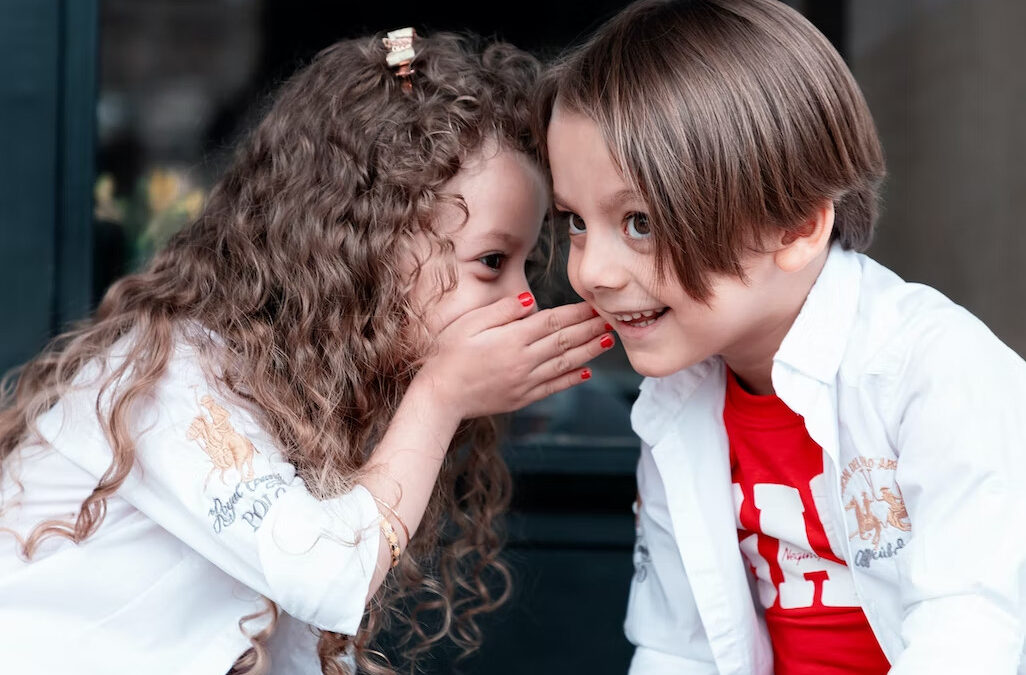
A Listening Experiment…
by Rev. Dale Azevedo, Sr. Minister
Take a moment and get comfortable.
Before you read any further, make sure that you have 15 minutes to proceed. Or proceed, and then come back again when you have more time.
Also, make sure that you have a piece of paper and a writing utensil. I prefer a pencil.
Now, again, get comfortable, take a moment, and breath.
Then, read on.
Imagine there are no limits,
no financial constraints,
plenty of volunteers and time,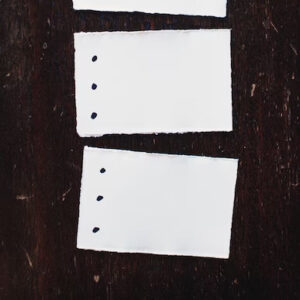
and all the expertise you would need…
…what ministry would you have the church undertake?
Think wild. Think crazy. Think big impact. What could we possibly accomplish under those circumstances?
Take a moment now and write down your ministry idea, your crazy thought. In fact, don’t just write down one idea, write down three. Right now, find a piece of paper and write down three large-ambition ministry ideas that would change the world (or at least change the lives of those directly engaged by it). And, be sure to leave some space underneath or next to each idea. Remember, finances, volunteers, time, and expertise are all not an issue. List three new impactful ministries would you have us undertake?
Did you do that? Did you write down three crazy ideas?
Now, next to each of those three ideas write down who will be served by each of them. What community or group of people, will be impacted by each of your ministry ideas? Write that down next to each ministry.
 After you’ve done that, think about the immediate impact this program will have on the lives of the group you identified. What will be the intermediate impact? And what will be the long-term impact. Will that ministry make a noticeable difference in the lives of the community or group you identified above? Write that down, too. Write down the immediate, mid-range, and long-term impacts of each ministry idea you have. Do that now.
After you’ve done that, think about the immediate impact this program will have on the lives of the group you identified. What will be the intermediate impact? And what will be the long-term impact. Will that ministry make a noticeable difference in the lives of the community or group you identified above? Write that down, too. Write down the immediate, mid-range, and long-term impacts of each ministry idea you have. Do that now.
Now, you have a choice. You can either continue working with all three ministry ideas you started with or pick the one that is speaking the most to you right now. Decide which path you are going to take: one idea…or all three?
Whether you have singled out one idea or are going to continue to work with all three, take a moment and brainstorm all the different skill sets that might be necessary to carry out that ministry. Remember, there are plenty of volunteers and experienced people in this dream. So, think about what types of people endowed with what essential skills are necessary for this ministry to be successful? Write those people/skills down. Whether it is one person with one skill or 20 people with 20 different skillsets, write them all down. Be as specific as possible.
I hope you left a lot of space at the beginning, because we have one more thing to write down. Think about what groups or organizations might be able to help with your crazy idea. These can be inside or outside the church. Are there other groups or organizations that someone could partner with, to carry out this ministry? Maybe providing some of the skills 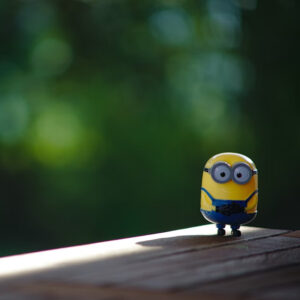 you listed above? Write these organizations down.
you listed above? Write these organizations down.
Finally, there is one last thing that is missing…you. Look back over all that you have written down. Where do you fit in? What large or small part might you be able to play in this ministry? Remember, time and resources aren’t an issue. You’ll have plenty. So where do you fit in this picture? Because you are essential to making it all work. That’s why God is working through you right now as you write all this down. Because you can help make this happen. So, write down what your role is in this hairbrained, whacky, awesome ministry idea that you have come up with. Write, “I can help by…” and complete the sentence.
Now, if you trust God enough to live on the edge, to make a difference in the world or in your life, take this piece of paper and send it to me. Email it to me. Snail-mail it to the office (461 County Rd. Barrington, RI 02806). Or bring to the church yourself and hand-deliver it to me. I’d love to see it. I’d love to see what God is saying to me, to us, through you. Would you do that? Can you do that?
Let’s see what God is saying!
Blessings be with you this day.
Dale

Making History in Context
by Rev. Racquel Ray, Assoc. Minister (Acting)
We are so blessed to be part of a church congregation that is happy, healthy, and growing! In a season of the Church when many churches are shrinking and closing, we are fortunate. Our success as a congregation is no accident. It is the result of intentional ministry and investment of time, talent and financial gifts. There is a formula for church success, and it does involve intentional hard work. It requires vision and focus. It also involves radical welcome and ministry that is responsive to the Still Speaking God in the community.
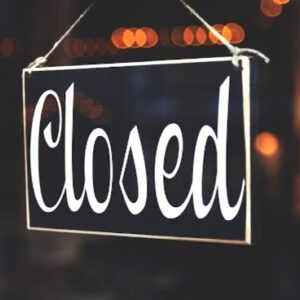 Almost every seminary professor would mention at some point in our classes, “the church is dying”. No seminarian, preparing to work in the church, wants to hear that their vocation will bring them to a dead end. One professor, out of dozens, highlighted the source of success in ministry: successful churches listen to their communities and respond to their particular contexts. Churches that are only open for a few hours on Sunday mornings are struggling. Churches that integrate their contexts and their ministries by intentionally blending congregation and community thrive.
Almost every seminary professor would mention at some point in our classes, “the church is dying”. No seminarian, preparing to work in the church, wants to hear that their vocation will bring them to a dead end. One professor, out of dozens, highlighted the source of success in ministry: successful churches listen to their communities and respond to their particular contexts. Churches that are only open for a few hours on Sunday mornings are struggling. Churches that integrate their contexts and their ministries by intentionally blending congregation and community thrive.
If we really look at our current community and our particular contexts we may notice that we have many retired members, some members with physical differences who have challenges accessing the sanctuary and sitting for an hour in non air-conditioned summer heat, some members come as families, some single adults, some young adults, teens and tweens, and school-aged kids. We have a gap in young people with absolutely NO tenth graders in our congregation. Over the past few weeks, several new families have inquired about our congregation and programs and several families are rejoining in-person events and activities. We have several members who are joining worship on-line and are requesting more inclusion with bulletins, visual, and hearing accommodations.
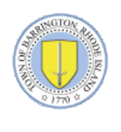
 We are part of the larger Barrington community whose main industry is children’s education and enrichment. We have a YMCA, Senior Center, recreational sports leagues, and a few local and chain retail shops and restaurants. Our neighbors include several other houses of worship which partner with our inter-faith softball league, clergy group, and occasional ecumenical services or projects. We also have a private boarding and day school just up the road from the church, a robust public service network, a country club, a mix of single-family homes, and miles of shoreline. We are privileged to have green spaces, conservation land, parks, playgrounds, beaches, and a bike path.
We are part of the larger Barrington community whose main industry is children’s education and enrichment. We have a YMCA, Senior Center, recreational sports leagues, and a few local and chain retail shops and restaurants. Our neighbors include several other houses of worship which partner with our inter-faith softball league, clergy group, and occasional ecumenical services or projects. We also have a private boarding and day school just up the road from the church, a robust public service network, a country club, a mix of single-family homes, and miles of shoreline. We are privileged to have green spaces, conservation land, parks, playgrounds, beaches, and a bike path.
You already know all of this. I only review our context to ask the question, “What is our role in the community?” I have heard people refer to BCCUCC as the ‘rainbow church’, the ‘white church’, the ‘happy church’. Our history was as the center of the community: government, religion, education, and community center. Who are we now?
As we emerge from the pandemic and recreate our church community, we have a unique opportunity in the lifetime of the church to define who we are and who we want to be. What do we want to contribute to the community? Where might we focus our attention and our intention?
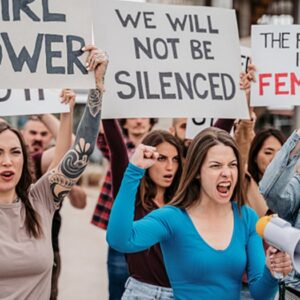
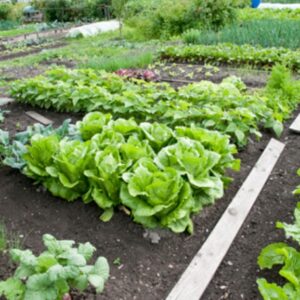 Do we want to be the mission and justice church hosting justice vigils, supporting local, national, and global missions, and supporting legislative advocacy at the state house? Do we want to be the green church that raises environment awareness through solar panels, electric vehicle charging stations, compost bins, recycling, reducing, reusing, repurposing, and growing organic produce for the community? Do we want to be the rainbow church that is open and affirming to people who identify as LGBTQIA+ and engage in local, national, and global advocacy for that community? Do we want to be the healthy church that offers classes, group activities, awareness, and challenges toward the physical care of the body? Do we want to be the historical church that embraces our history and opens our doors to tours, exhibits, lectures, and programs around that history? Do we want to be the kids church where local families flock to enrich the spiritual growth of their youngest members? Do we want to be an outreach church where what we do in church informs our work with the poor, the hungry, the homeless, the naked, the thirsty, the incarcerated – what Rev. Emma Brewer-Wallin calls ‘the least of these’? If we were to choose ONE or TWO ministries to focus our ministry on, what would we choose?
Do we want to be the mission and justice church hosting justice vigils, supporting local, national, and global missions, and supporting legislative advocacy at the state house? Do we want to be the green church that raises environment awareness through solar panels, electric vehicle charging stations, compost bins, recycling, reducing, reusing, repurposing, and growing organic produce for the community? Do we want to be the rainbow church that is open and affirming to people who identify as LGBTQIA+ and engage in local, national, and global advocacy for that community? Do we want to be the healthy church that offers classes, group activities, awareness, and challenges toward the physical care of the body? Do we want to be the historical church that embraces our history and opens our doors to tours, exhibits, lectures, and programs around that history? Do we want to be the kids church where local families flock to enrich the spiritual growth of their youngest members? Do we want to be an outreach church where what we do in church informs our work with the poor, the hungry, the homeless, the naked, the thirsty, the incarcerated – what Rev. Emma Brewer-Wallin calls ‘the least of these’? If we were to choose ONE or TWO ministries to focus our ministry on, what would we choose?
If we were to focus on one area per year or one area over the course of two or three years, what might that look like and what impact will it make on the community? Not losing sight of the Gospel message of Loving God, Loving Neighbor, and Loving Self how might we direct our efforts as one body? How does the love of Christ inform that ministry? And how can we build upon the solid foundation we already have co-created?
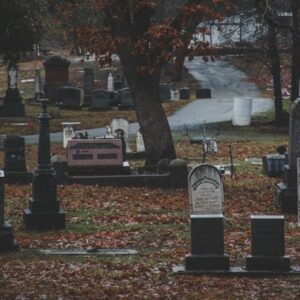 On a recent walk through a local cemetery, I noticed that one of the gravestones had the inscription listing the birth and death dates and had calculated the years, months, and days. What struck me in this inscription is that the family of the interred counted their days. Each day of their loved one’s life mattered. It reminded me that as we re-gather in congregational community we have the option to make our days count. We have the ability to make history – or take our place in it – here in our current context.
On a recent walk through a local cemetery, I noticed that one of the gravestones had the inscription listing the birth and death dates and had calculated the years, months, and days. What struck me in this inscription is that the family of the interred counted their days. Each day of their loved one’s life mattered. It reminded me that as we re-gather in congregational community we have the option to make our days count. We have the ability to make history – or take our place in it – here in our current context.
The United Church of Christ offers certification support for congregations who want to build Wellness Programs, Green Church (environmental justice), and WISE certification (mental wellness safe space). There are national supports for becoming a private day school and offering a Christian education for elementary through high school students. There are supports for becoming a seminarian or chaplain learning facility. All of these possibilities require years of collaboration and visioning.
As a historical, justice-minded, open and affirming, safe space for cross-generational gatherings, with excellent worship, healthy and vibrant relationships, a superb staff, and large campus church in a education-minded small town how can we make our days count? How can we make our mark on history and our community? And what might our focus be?
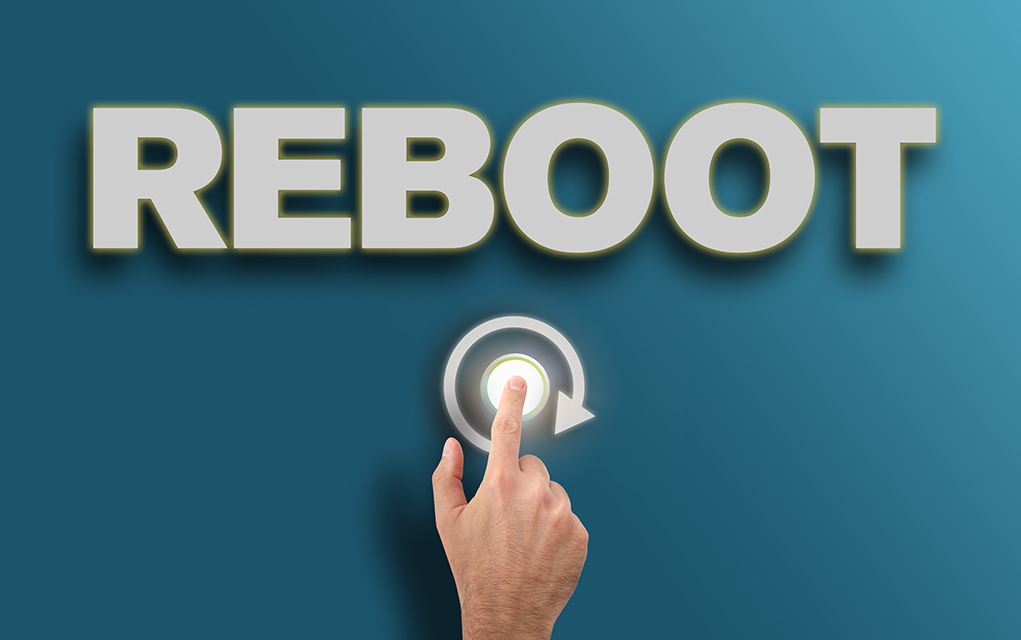
Reboot Church
by Rev. Dale Azevedo, Sr. Minister
If you have ever reached out to someone for technical support for your computer, or really any other electronic device, the first question you likely heard is, “Have you tried turning your system off and back on again?”
This is sensible advice. It’s called rebooting your system and what it does is it returns all of your system settings, hardware and software, to a zero state. It basically means everything goes back to the beginning and starts over. This process eliminates any errors, problems, or even wrong turns you or your computer may have made. As simple as it sounds, it resolves probably 90% of computer glitches or malfunctions. It’s just a great way to start over with a clean slate so that, even if it doesn’t fix the problems, it provides a clean unmolested system to troubleshoot.
Last week I was asked to reboot.
As many of you know, I spent last week away on retreat. I spent the week “listening” 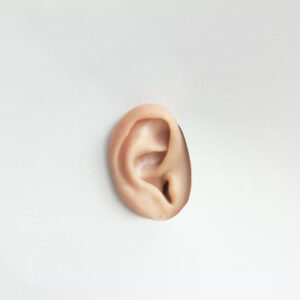 to God expecting the “still, small voice” of God to speak to me about the direction of our church as we continue to plot our way out of the pandemic. The word that came to me right from the start was, “You need to reboot the system.”
to God expecting the “still, small voice” of God to speak to me about the direction of our church as we continue to plot our way out of the pandemic. The word that came to me right from the start was, “You need to reboot the system.”
Reboot the system? What does it mean to reboot the church? As I prayed about that, it became clear that I was being asked to go back to the beginning, to start over, to go back to basics, start thinking about church from a clean slate. I asked myself, “What does it mean to be the church?” or even more basic than that, “What does it mean to be a follower of Jesus?”
The answer to me was quick and clear: Love God, Love Neighbor, Love Self.
One of them, a teacher of the law, tested him with this question, “Teacher, which is the greatest commandment in the Law?” Jesus replied: “‘Love the Lord your God with all your heart and with all your soul and with all your mind.’ This is the first and greatest commandment. And the second is like it: ‘Love your neighbor as yourself.’ All the Law and the Prophets hang on these two commandments.” (Matthew 22:36-40 NIV)
All the law and the prophets hang on these commandments:
Love God, Love Neighbor, Love Self.
Nothing seemed truer to me in all my life. It is that simple. That is what each of us are called to do: Love God, Love Neighbor, Love Self. That is what it means to be a disciple and what it means to be the church. In fact, I tweaked it a little realizing that the role of the church is not only to Love God, Love Neighbor, and Love Self, but also to provide opportunities for its members and the broader community to do the same, Love God, Love Neighbor, Love Self.
I was also amazed at how easily our Mission Statement fit into this great commandment.
The Barrington Congregational Church, United Church of Christ, is a Christian community that worships God, embraces all people, ministers to one another, works for justice and peace, and renders loving service to God’s world.
Look at this chart: It was amazing for me to see how well our mission statement fit into God’s call. This reaffirmed for me that this IS what God is calling us to do this year. Focus on the simple. Reboot church. Make sure that EVERYTHING we do fits into one of these three missions: Love God, Love Neighbor, Love Self.
It was amazing for me to see how well our mission statement fit into God’s call. This reaffirmed for me that this IS what God is calling us to do this year. Focus on the simple. Reboot church. Make sure that EVERYTHING we do fits into one of these three missions: Love God, Love Neighbor, Love Self.
The other thing that occurred to me about rebooting is that we need to simplify. So much of what we do is complex. The bar for entry into ministry is high. Who authorizes 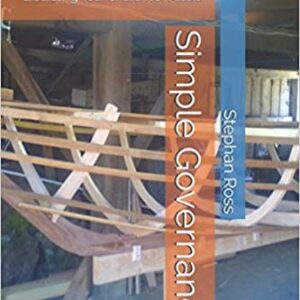 ministries? How do we fund them? How does someone new get involved? How long of a commitment do we ask for? How flexible are we to seeing things done differently? Do people understand the impact of each ministry? Etc., etc.
ministries? How do we fund them? How does someone new get involved? How long of a commitment do we ask for? How flexible are we to seeing things done differently? Do people understand the impact of each ministry? Etc., etc.
If the primary role of the church is to provide opportunities for people to Love God, Love Neighbor, and Love Self, how easy do we make it for people to participate? How clear are the expectations? How do people know that their efforts will make a difference?
This is only the tip of the iceberg that came to me last week. There is still much to share and much to discern. And I am not doing this in a vacuum. Next week I will be sharing much of this, and more, with the Church Council. In September, I will be holding a worship series on this insight in which the whole church will collaborate as we dig deeper into this call.
Everyone knows that on some level we are hurting as a church. We have come through two and a half years of pandemic life. We’ve survived it really well, and by many measurements are thriving compared to other congregations. But we also know we can be more. I think we all feel it. We all sense it. We all know that God is just waiting to do amazing things with us, in this year and beyond. And I think it all begins by focusing on the simplest of calls:
Love God, Love Neighbor, Love Self.
Will you join me in this journey?
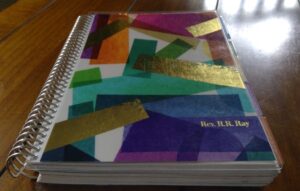
Where Are We?
by Rev. Racquel Ray, Assoc. Minister (Acting)
When I was a kid I loved school. August, for me, is a time of great excitement. It is a time of planning and organizing. It is a time of preparation. I love the smell of fresh pencils and notebooks. And anyone who has gotten to know me can attest to my love for planners, stickers, and scented markers. I love the flow of the academic year on a college campus beginning in August with orientation and syllabi. I love adding all of the many schedules and activities onto the calendar and color coding the events and people in my calendar system. I love overlapping that planning system with the church Liturgical Calendar and the secular seasonal calendar.
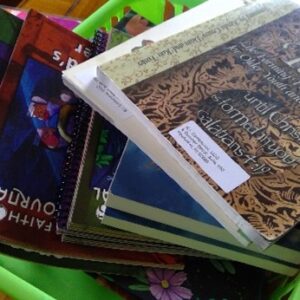 Currently, church staff are all synthesizing various planning calendars and events from all of our ministry teams. Dale and I are merging the Liturgical Calendar with Worship ideas and seasonal events around the fall kick-off, preaching series ideas, guest speakers/preachers, and an over-arching theme. Andrea and I are merging Church School, Youth Group, and Confirmation ideas around the Faith Formation and Youth Ministry team and family engagement opportunities. In co-creative synergy our staff team is innovating ministry within our current contexts around pandemic post traumatic resiliency and rebuilding.
Currently, church staff are all synthesizing various planning calendars and events from all of our ministry teams. Dale and I are merging the Liturgical Calendar with Worship ideas and seasonal events around the fall kick-off, preaching series ideas, guest speakers/preachers, and an over-arching theme. Andrea and I are merging Church School, Youth Group, and Confirmation ideas around the Faith Formation and Youth Ministry team and family engagement opportunities. In co-creative synergy our staff team is innovating ministry within our current contexts around pandemic post traumatic resiliency and rebuilding.
 Now is the time to ask, “Where are We?” In the last blog, Rev. Dale wrote about his upcoming visioning retreat (which is next week). The following week, I will be taking a week of retreat visioning also. We are intentionally taking sacred space and time apart from our daily routines to evaluate where we are and where God is taking us.
Now is the time to ask, “Where are We?” In the last blog, Rev. Dale wrote about his upcoming visioning retreat (which is next week). The following week, I will be taking a week of retreat visioning also. We are intentionally taking sacred space and time apart from our daily routines to evaluate where we are and where God is taking us.
Last week, I participated in a Rhode Island Minister’s Association (RIMA) Clergy Retreat. We are all asking the same questions: Where are we? And Where are we going? Some ministers are so exhausted, so depleted that they are choosing to NOT rebuild the church to pre-pandemic membership. Instead, they are choosing to embrace the members that attend and deepen the relationships that remain. Of course, the consequence of that are decreased (by about 50%) membership and financial provision for the church. It means less ministry, less programs, and less outreach to the community. Other ministers are being more energetic and co-creative using the time in empty buildings to re-paint, re-build technology, and reach out to members through virtual meetings and worship. All of the ministers are tired. And we’re all trying to discern what God is asking of us as we move forward.
 I am not ready to resign myself to decreased membership. I am not ready to accept that our members who are not participating in-person regularly are gone forever. In reaching out to our congregation we have learned that there is definitely a spectrum of risk tolerance and risk aversion. Some folks are not comfortable meeting in person. Others are comfortable meeting in person. And, I’m somewhere in the middle. Our kids are preparing to enter their second year of in-person learning amid the stress of covid. Many of us are working from home and others have returned to their places of professional service.
I am not ready to resign myself to decreased membership. I am not ready to accept that our members who are not participating in-person regularly are gone forever. In reaching out to our congregation we have learned that there is definitely a spectrum of risk tolerance and risk aversion. Some folks are not comfortable meeting in person. Others are comfortable meeting in person. And, I’m somewhere in the middle. Our kids are preparing to enter their second year of in-person learning amid the stress of covid. Many of us are working from home and others have returned to their places of professional service.
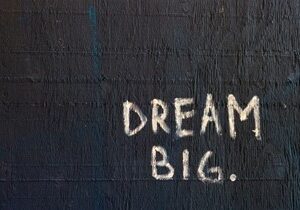 I am ready to prepare for church growth. I think that when people are again comfortable with meeting in person, they will want to find a place where their spirit is renewed. I think church can offer comfort for the bereaved, conversations around the tough questions, safe fellowship where differences are honored, safe activities for people of all ages, abilities, and identities. I believe the Living Water of Jesus, the renewal of the Holy Spirit, and the unconditional love of God is just what we need. And many people are looking for that.
I am ready to prepare for church growth. I think that when people are again comfortable with meeting in person, they will want to find a place where their spirit is renewed. I think church can offer comfort for the bereaved, conversations around the tough questions, safe fellowship where differences are honored, safe activities for people of all ages, abilities, and identities. I believe the Living Water of Jesus, the renewal of the Holy Spirit, and the unconditional love of God is just what we need. And many people are looking for that.
I will be in my office at church and at my home dining room table busy with planners, stickers, and scented markers. I will be planning, dreaming, and visioning with God. I will be preparing for Back to School and Back to Church. Where are we? Where are you? Where will you be? And how can I help you there?

Taking a Week to Listen…
by Rev. Dale Azevedo, Sr. Minister
Right now, as you read this, I’m taking a bit of vacation. We are visiting Elizabeth’s family to celebrate her father’s birthday. As I write this the day before we leave, I am hoping it will be a good time, filled with laughter and reconnection. Some family we haven’t seen in years and many of the cousins haven’t gotten together since they were little (and now they have children of their own!). Rekindling relationships is good. Feeling connected is good. I would argue, even, that being connected is essential! To ourselves, others, and God.
In August, I will be taking another week away. That week will not be a week of vacation. Instead, I will be reconnecting with God. Two Sundays ago, Racquel preached on listening to God, “hearing rain long before it comes,” even when there is no evidence of its eventual appearance. I am taking that week to be away and listen for the rain that is coming.
Also right now, we are emerging from the COVID pandemic. At least, we think and hope we are emerging out of the pandemic. Yet, if we look at our church with eyes open, we see how much we are missing. Life, including church life, has not returned to “normal.” We are in a new reality, missing much of what we 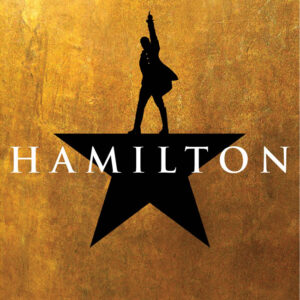 used to have. Our pews, our ministries, our outreach, our programs, are all far emptier than they used to be.
used to have. Our pews, our ministries, our outreach, our programs, are all far emptier than they used to be.
If we want to see all these items fill back up, we cannot continue with “business as usual.” We need to be intentional. We need to make the effort. “Dying is easy…Living is harder.” (A quote of George Washington’s from the musical Hamilton.). Churches all around us are dying. All we must do to follow suit is sit back and wait for people to return or for the community to come through our doors. They won’t. And we’ll whither like so many faith communities around us. The need, right now, is to be intentional, to put in the hard work, to make the necessary changes to our usual business in order to be relevant in our community. In other words, it’s up to us to engage the community, and our members, and the needs we see around us. Only then will we live. And only then will we truly emerge from the pandemic.
The trick is to know what to do and how to do it.
Therefore, I am taking a week to listen.
Racquel spoke about listening to spirit as it emerges before it is seen or felt in our midst. Frankly I have no clue how to be the church in a post COVID world. Oh, I have guesses. I have thoughts. But are they right? Will they work? How do we bring them to reality? These are the questions we still need to answer.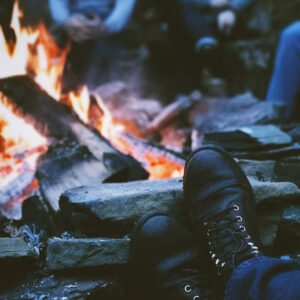
For this reason, I am taking a week (four days really) in August to go camping and listen to God. This is not a vacation. I am planning on intentionally listening to the Spirit, exploring the possibilities, and weighing our options. I am hopeful that some powerful insights will come to me. I anticipate some realizations to arise about who we are and how we can once again live out our mission to “worship God, embrace all people, minister to one another, work for justice and peace, and render loving service to God’s world.” Afterward, I plan to bring these ideas back to you for consideration from the Church Council, our ministry teams, and our membership.
I’ve never done this before. I’ve known other ministers who do this annually; every summer take a week away to listen to God and prepare the following year’s ministry. I’ve always wanted to do it, but never have. This year it seems essential to our future. We have so much potential, so many opportunities before us. But  we have limited strength and resources. Where is it best to place these resources? What are the best ways to make an impact in our community and beyond? How do we live out the call of Christ in this time and this location? I see a great future for us, but in order to get there we need to know where to go and how to proceed. I invite you to take some time and think on this as I will be. Hopefully, in doing this together, God will speak, we will hear the rain even before it comes, and we will rejoice in the refreshment it brings.
we have limited strength and resources. Where is it best to place these resources? What are the best ways to make an impact in our community and beyond? How do we live out the call of Christ in this time and this location? I see a great future for us, but in order to get there we need to know where to go and how to proceed. I invite you to take some time and think on this as I will be. Hopefully, in doing this together, God will speak, we will hear the rain even before it comes, and we will rejoice in the refreshment it brings.
Think of me August 14-18. And I look forward to sharing with you what I hear.

Grounding
by Rev. Racquel Ray, Assoc. Minister (Acting)
You may have heard that because of last month’s electrical storm in our area, several of our church’s electronic components were damaged (and since repaired). Lightning struck so near to our church, seeking ground, that it traversed our building. Animals are said to ‘go to ground’ when they sense danger. Grounding is also a physiological technique to seek wellness and equilibrium in times of anxiety or stress.
So, what does it mean to seek grounding? And why does creation itself seek grounding during times of distress? Genesis 2 tells us, “God crafted the human from the dust of the humus and breathed into its nostrils the breath of life, and the human became a living soul. And the Sovereign God planted a garden in Eden, in the east, and there placed the human who God had formed. Out of the ground the sovereign God made grow every tree pleasant to the sight and good for food, and the tree of life in the middle of the garden, along with the tree of the knowledge of good and evil.” God instructed the human to till and tend the garden and gave the human instructions to eat freely (with one exception of the tree of knowledge of good and evil). Not only is the human grounded in the garden, tilling and tending, but is also of the ground itself. Going to ground is like returning to the beginning.
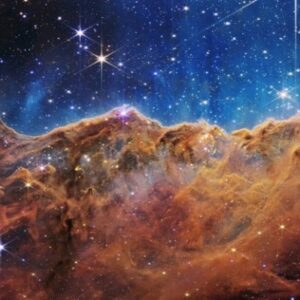 As the James Webb Telescope images are revealed, there is a vast cosmos that humans have yet to experience. The spectrum from dust of the earth to infinite cosmos is incalculable. We’re at once mesmerized by the unknown and rooted in our local dust. Author Sallie McFague writes in The Body of God, An Ecological Theology, “The common creation story radicalizes both oneness and difference…On our tiny planet alone biologists have found in a single square foot of topsoil one inch deep and average of 1,356 living creatures…from one millionth of a gram of matter, unimaginable unity, has evolved unimaginable diversity, not only in the vast galactic realms of the observable universe but also in equally inconceivable ways, on our planet. (McFague, 1993)
As the James Webb Telescope images are revealed, there is a vast cosmos that humans have yet to experience. The spectrum from dust of the earth to infinite cosmos is incalculable. We’re at once mesmerized by the unknown and rooted in our local dust. Author Sallie McFague writes in The Body of God, An Ecological Theology, “The common creation story radicalizes both oneness and difference…On our tiny planet alone biologists have found in a single square foot of topsoil one inch deep and average of 1,356 living creatures…from one millionth of a gram of matter, unimaginable unity, has evolved unimaginable diversity, not only in the vast galactic realms of the observable universe but also in equally inconceivable ways, on our planet. (McFague, 1993)
McFague reminds us that the common creation story prioritizes embodiment. When humans tackle the difficult challenges of life on this planet and the equally difficult task of making meaning of that life in relationships with others, we are doing so as embodied creatures. For Christians, Jesus exemplifies this experience. He taught us how to live as embodied humans individually and corporately.
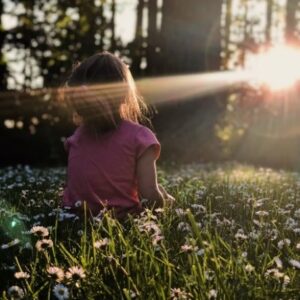 As we face those challenging moments and peoples in our lives it is easy to forget Jesus’ example of behavior. And it is even more difficult to see ourselves as equally embodied creatures made from dust and set in a garden to tend and till. Forgetting that basic creation story can bring us to disconnection from creation and the Creator.
As we face those challenging moments and peoples in our lives it is easy to forget Jesus’ example of behavior. And it is even more difficult to see ourselves as equally embodied creatures made from dust and set in a garden to tend and till. Forgetting that basic creation story can bring us to disconnection from creation and the Creator.
Grounding brings us back to embodiment and connection. Lightening seeks ground, animals burrow, and humans need connection. We crave connection to creation, the earth, plants, animals, and other humans. Grounding is the process of reconnecting to creation. Natural health practitioners, massage therapists, Reiki masters, and many ministers know how to take time to reconnect to creation as they care for others. I have a friend who puts her hands in the dirt after each massage to release the client’s energy and reconnect her own to the earth. I know people who carry rocks or gem stones in their pockets to remind them of their connection to the earth. Some like to walk barefoot outside. Many like to hike and garden.
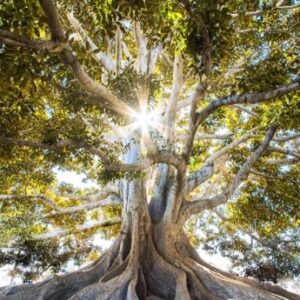 I find reconnection in nature by hiking within a forest of enormous trees, walking on the beach or the bike path, or tilling and tending my garden. I am reminded that as I bring in this summer’s abundant harvest (so far kale, asparagus, black raspberries, blueberries, green beans, yellow squash, and herbs) I am reconnecting, grounding, with creation (the garden) and the Creator (the Sovereign God). It is in these moments where I am able to process stress with better perspective and patience. It is in these embodied actions that I am able to listen deeply to myself, others, and God.
I find reconnection in nature by hiking within a forest of enormous trees, walking on the beach or the bike path, or tilling and tending my garden. I am reminded that as I bring in this summer’s abundant harvest (so far kale, asparagus, black raspberries, blueberries, green beans, yellow squash, and herbs) I am reconnecting, grounding, with creation (the garden) and the Creator (the Sovereign God). It is in these moments where I am able to process stress with better perspective and patience. It is in these embodied actions that I am able to listen deeply to myself, others, and God.
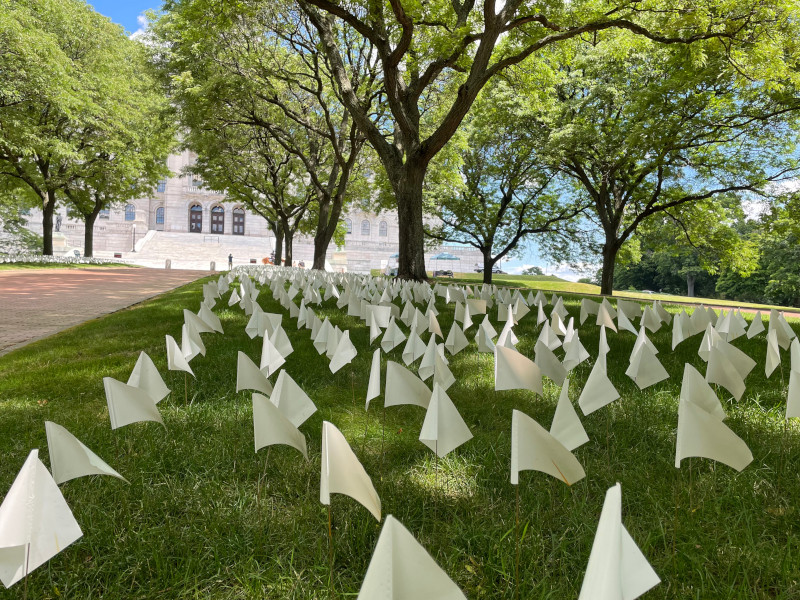
A Time to Remember…and Move Forward
She was sitting alone on the grass, kneeling by the white flag placed along the walkway to the State House. A few tears gently rolled down her cheeks. It was a bit of a miracle. The flag before her was just one of 3609 white flags placed along the walk. It was her husband’s flag. The day before some of his coworkers from the DOT came to the memorial, decorated a flag especially for their fallen friend, and replaced one of the plain white flags, with the one the made honoring him. Among the sea of flags, she found the one. It was a chance for her to grieve, to say goodbye to her husband whom she lost during the years we’ve been fighting COVID.
Some of us know all too well the stories of the families that have been unable to grieve in the usual ways during the pandemic. Funerals were not allowed, or only held outside, or restricted to 5, or 10, or 15 people. Many were unable to be with their loved ones when they passed and could only stand outside a nursing home window, waving to or praying for their loved one. 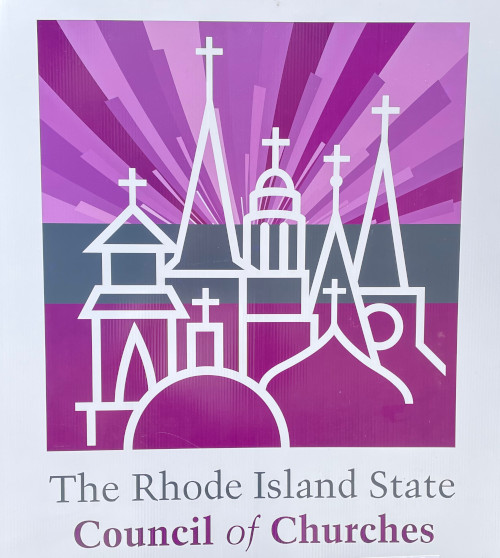 Like so many other aspects of life during the pandemic, dying has been different. This week, the state Council of Churches provided an opportunity for Rhode Islanders to grieve publicly for their loss.
Like so many other aspects of life during the pandemic, dying has been different. This week, the state Council of Churches provided an opportunity for Rhode Islanders to grieve publicly for their loss.
What also made the story of this particular woman so powerful, was that the minister who approached the young widow happened to be the same minister who spoke with her late husband’s coworkers when they stopped by. She was able to hear their stories and then pass them along to her. A blessing many fold.
The blessing for me is that I was able to be a part of it, to witness it, to see God working in these mysterious and amazing ways. Just by being present at the memorial as a chaplain, I was able to affirm that her husband mattered, that someone (many someone’s, actually) was willing to take the time to honor and remember him, even if we never knew him. And by meeting her, and sharing in this act of remembrance, I was able to honor both him and the love they shared together.
3609 flags.
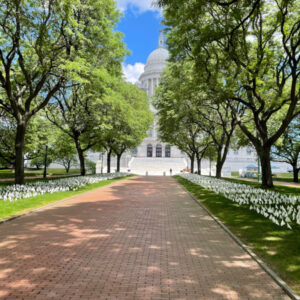 This woman’s story is just one of thousands from our state and over a million in our country. In many ways most of us have moved past Covid. Life, although not the same as it was, has returned to something that resembles “normal.” We anticipate that this trend will continue. But some things will never return to the way they were. We are different. The world is different. How Covid has impacted us and our culture is yet to be fully realized. The same way that the Great Depression or World War II changed those who lived through them, this has changed us.
This woman’s story is just one of thousands from our state and over a million in our country. In many ways most of us have moved past Covid. Life, although not the same as it was, has returned to something that resembles “normal.” We anticipate that this trend will continue. But some things will never return to the way they were. We are different. The world is different. How Covid has impacted us and our culture is yet to be fully realized. The same way that the Great Depression or World War II changed those who lived through them, this has changed us.
An interesting reality is that we may have some say on how this happens, on what changes are carried on going forward. If you could choose how you would like the world to be different “post-pandemic” what would you decide? How would you change things? What would you like to be different? And then, an interesting follow-up question is, “What are you doing now to help make that so?” We are not just victims being tossed around by the winds of change. We have agency to impact those winds and enact change.
A few weeks ago I chose to participate in the Rhode Island State Council of Church’s Covid Memorial. I chose to go this week and be present. And in doing so, I impacted at least one woman’s journey, one woman’s experience of grief and love. And I impacted myself as well. What can you do today to make this new reality we are living into a better reality than the one that came before?


